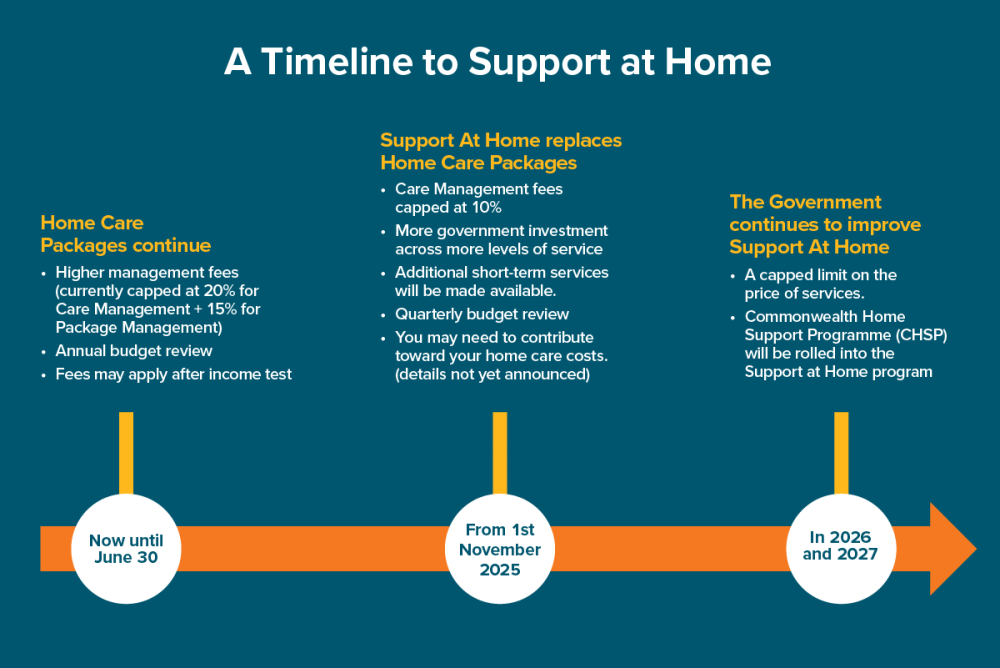A step-by-step guide to working with home care providers under the NDIS
Everything About Home Care Providers for People With Disabilities: NDIS Registered Support
Home care solutions under the NDIS play a critical function in supporting people with specials needs. These solutions are designed to boost day-to-day living through customized assistance, ranging from personal care to wheelchair assistance. Comprehending exactly how to navigate these alternatives can be intricate. This introduction discovers the numerous facets of NDIS home care, from available services to the selection of providers, highlighting essential considerations for those seeking assistance. The trip towards equipped treatment begins here.
Recognizing the NDIS and Its Purpose
The National Disability Insurance Plan (NDIS) acts as a transformative structure created to offer support and solutions for people with disabilities. Established to enhance the high quality of life and assurance equitable accessibility to essential sources, the NDIS encourages individuals by using customized plans tailored to their unique demands. It intends to cultivate independence, making it possible for people to pursue their personal goals and aspirations.Through an organized method, the NDIS assigns financing for various supports, consisting of education and learning, work support, and area participation. This all-encompassing plan not just concentrates on instant care but also highlights long-lasting developmental results. By promoting selection and control, the NDIS urges individuals to choose their recommended provider, assuring that treatment lines up with their choices and values. Inevitably, the NDIS represents a considerable dedication to improving the lives of people with specials needs, cultivating inclusivity, and constructing a more encouraging culture.
Types of Home Treatment Provider Available
Numerous sorts of home care services provide to individuals with specials needs, largely concentrating on individual care help and reprieve treatment options. Individual treatment assistance offers necessary support with day-to-day activities, while reprieve care provides short-term relief for key caregivers. Recognizing these solutions is vital for making sure the wellness of both people with handicaps and their families.
Personal Care Assistance
While navigating day-to-day life can offer challenges for people with handicaps, individual care assistance supplies vital support tailored to their one-of-a-kind needs. This kind of home treatment service encompasses a series of activities developed to promote freedom and boost high quality of life. Individual care assistants aid with everyday tasks such as bathing, dressing, brushing, and toileting, ensuring individuals keep individual health and comfort. They may likewise assist with meal preparation, medicine administration, and mobility assistance. By giving individualized care, these specialists encourage people to engage more fully in their day-to-day routines and social activities. In general, personal care help plays a significant role in cultivating self-respect and freedom for those with disabilities, enabling them to flourish in their home environment.

Respite Care Options
Respite care works as a vital source for families and caretakers of people with handicaps, offering temporary remedy for the demands of everyday caregiving. This type of solution can take various types, consisting of at home respite care, where skilled specialists see the home to aid with treatment tasks. Additionally, households might select facility-based reprieve treatment, where people receive treatment in a customized setting, enabling caregivers to take a break. Furthermore, some organizations supply emergency break solutions for unanticipated scenarios. These alternatives not just help relieve caregiver stress and anxiety but likewise promote the health of people with handicaps by using them new experiences and social interaction. Generally, reprieve treatment plays a vital function in sustaining both caregivers and those they care for.

How to Accessibility NDIS Home Care Providers
Accessing NDIS home treatment solutions includes comprehending the eligibility requirements stated by the National Special Needs Insurance Policy Scheme. Individuals should browse a structured application procedure to safeguard the required support tailored to their needs. This section will clear up both the qualification needs and the steps involved in looking for services.
Qualification Requirements Discussed
To certify for NDIS home care services, people should satisfy specific eligibility standards that examine their demands and circumstances. Initially, applicants have to be aged in between 7 and 65 years and have a irreversible and significant disability that affects their capability to execute daily activities. Additionally, they need to be an Australian resident, a long-term resident, or hold a Protected Unique Group Visa. The NDIS needs proof of the handicap, generally via medical assessments or records. People ought to demonstrate that they require support to participate in financial and social life. These criteria ensure that services are guided towards those that genuinely require aid, advertising self-reliance and boosted lifestyle for individuals with handicaps.
Application Process Steps
Can I Pick My Own Support Employees Via NDIS?
The specific asked whether they might choose their own assistance workers under the NDIS structure. Generally, individuals have the flexibility to pick support employees, promoting customized treatment that lines up with their specific needs and choices.
What Happens if My Demands Adjustment After Obtaining Support?
They must connect these adjustments to their service provider if an individual's demands modification after getting support. Changes can be made to the treatment plan, making sure that the support remains efficient and pertinent for their circumstances.

Exist Restricts on Exactly How Many Hours of Treatment I Can Obtain?
The specific made inquiries regarding prospective limitations on the variety of care hours received. Typically, such limitations may exist based on particular policies or moneying setups, emphasizing the significance of examining agreements and standards frequently.
Can I Make Use Of NDIS Financing for Home Alterations?
The inquiry of making use of funding for home modifications arises frequently. Usually, people may utilize NDIS funding for needed alterations to their homes, guaranteeing ease of access and security, section upon meeting particular qualification criteria and guidelines.
Just how Do I Deal with Issues Concerning My Home Treatment Services?
To deal with complaints concerning home care services, individuals ought to initially document their worries. Then, they can connect straight with their provider, looking for resolution, or intensify the issue to pertinent oversight bodies if needed. Home care services under the NDIS play a pivotal duty in supporting people with handicaps. Numerous types of home care services cater to individuals with disabilities, largely focusing on personal treatment assistance and reprieve care alternatives. home care providers. Individual care aid gives important assistance with everyday tasks, while break care provides temporary relief for key caretakers. Family members may decide for facility-based break care, where people get treatment in a specialized why not try this out environment, enabling caregivers to take a break. Exactly how can households successfully take care of the financial elements of home treatment services for people with disabilities?